
Ilha do Cabo: Luanda's Seaside Gem
Ilha do Cabo, often referred to as the Island of Cape, is a vibrant and scenic peninsula in Luanda, Angola. This picturesque neighbourhood stretches out into the Atlantic Ocean and offers a unique blend of natural beauty and urban charm. Its stunning beaches are perfect for sunbathing, swimming, and enjoying water sports, making it a paradise for beach lovers. The area is renowned for its lively nightlife, with numerous bars, clubs, and restaurants that line the waterfront. Here, you can savor delicious Angolan cuisine, fresh seafood, and international dishes while enjoying breathtaking ocean views. The local music scene adds to the festive atmosphere, offering visitors a chance to experience the rich cultural heritage of Angola. Ilha do Cabo is also home to several historical landmarks and modern attractions. The iconic Fortaleza de São Miguel, a 16th-century fortress, provides a glimpse into the colonial past of Angola. Meanwhile, contemporary art galleries and boutique shops offer unique souvenirs and artworks that reflect the vibrant culture of the region. Whether you're looking for relaxation, adventure, or a taste of local culture, Ilha do Cabo has something to offer every traveler.
Local tips in Ilha do Cabo
- Visit early in the morning to avoid crowds at the popular beaches.
- Bring cash as some local vendors may not accept credit cards.
- Don't miss the sunset views; they are particularly spectacular from the western tip of the peninsula.
- Try the local seafood dishes at the waterfront restaurants for an authentic culinary experience.
Ilha do Cabo: Luanda's Seaside Gem
Ilha do Cabo, often referred to as the Island of Cape, is a vibrant and scenic peninsula in Luanda, Angola. This picturesque neighbourhood stretches out into the Atlantic Ocean and offers a unique blend of natural beauty and urban charm. Its stunning beaches are perfect for sunbathing, swimming, and enjoying water sports, making it a paradise for beach lovers. The area is renowned for its lively nightlife, with numerous bars, clubs, and restaurants that line the waterfront. Here, you can savor delicious Angolan cuisine, fresh seafood, and international dishes while enjoying breathtaking ocean views. The local music scene adds to the festive atmosphere, offering visitors a chance to experience the rich cultural heritage of Angola. Ilha do Cabo is also home to several historical landmarks and modern attractions. The iconic Fortaleza de São Miguel, a 16th-century fortress, provides a glimpse into the colonial past of Angola. Meanwhile, contemporary art galleries and boutique shops offer unique souvenirs and artworks that reflect the vibrant culture of the region. Whether you're looking for relaxation, adventure, or a taste of local culture, Ilha do Cabo has something to offer every traveler.
Iconic landmarks you can’t miss
Fortaleza de São Miguel
Explore the Fortaleza de São Miguel, a historical fortress in Luanda, offering breathtaking views and a rich glimpse into Angola's colonial past.
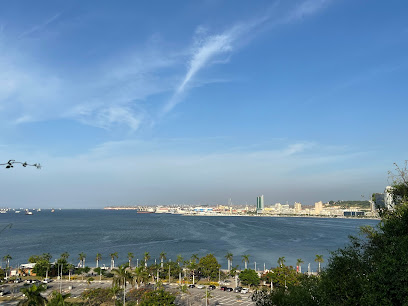
Miami Beach
Experience vibrant Angolan cuisine with stunning bay views at Miami Beach Restaurant, a Luanda culinary landmark since 1995.

Viewpoint of the Moon
Discover Angola's otherworldly landscape at Miradouro da Lua, a stunning vista sculpted by erosion into a lunar-like masterpiece.
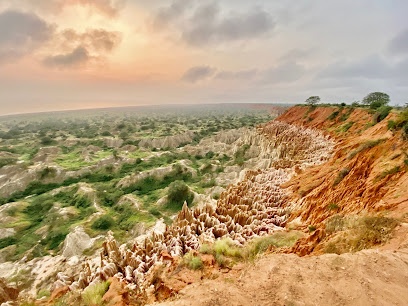
Museu da Moeda
Explore Angola's monetary history at Museu da Moeda, a captivating museum showcasing the evolution of currency and trade in Luanda.
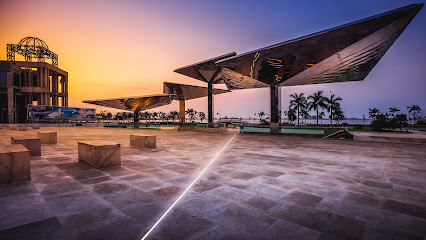
Church of Carmo
Discover the Church of Carmo in Luanda, a stunning Catholic church showcasing rich history and architectural beauty in Angola's vibrant capital.
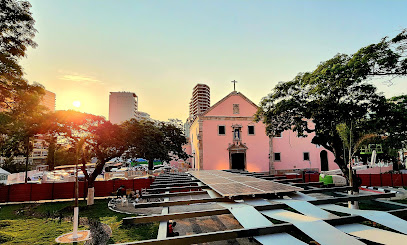
Luanda Bay
Explore the breathtaking beauty and vibrant culture of Luanda Bay, a coastal gem in Angola, perfect for relaxation and adventure.

Ilha de Luanda
Discover Ilha de Luanda: Angola's vibrant island escape with stunning beaches, rich culture, and exquisite dining experiences.
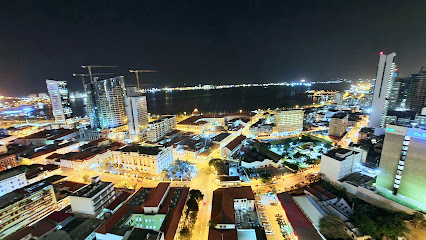
Lighthouse Island
Discover the serene beauty and vibrant wildlife of Lighthouse Island, a must-visit tourist attraction near Luanda, perfect for nature lovers and adventurers.

Church of Our Lady of Remedies
Explore the Church of Our Lady of Remedies, a stunning Catholic cathedral in Luanda blending spiritual significance and architectural beauty.
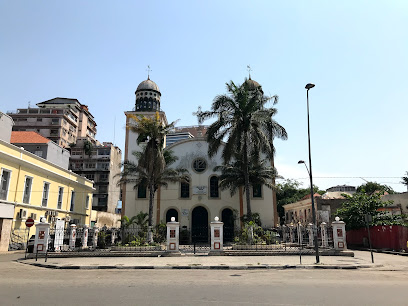
National Museum of Anthropology
Discover Angola's vibrant culture and history at the National Museum of Anthropology in Luanda, a treasure trove of ethnographic artifacts and exhibits.
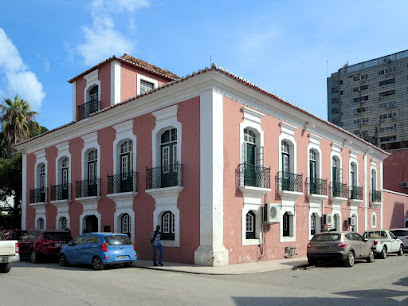
Nossa Senhora da Nazaré
Discover the captivating Nossa Senhora da Nazaré in Luanda, a stunning church blending spirituality with rich cultural heritage, perfect for all travelers.
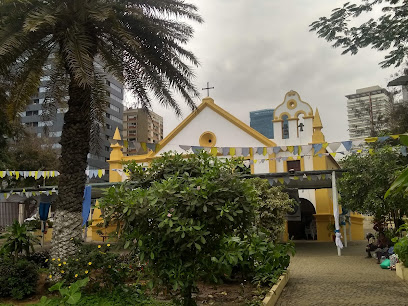
Ponto Final
Explore Ponto Final, a captivating historical landmark in Luanda with stunning views of the bay and a taste of Angolan culture.
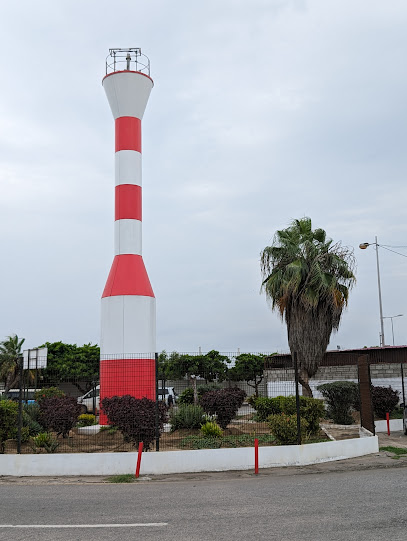
Igreja da Nossa Senhora do Cabo
Explore the spiritual and architectural beauty of Igreja da Nossa Senhora do Cabo, a must-visit Catholic church in Luanda, Angola.
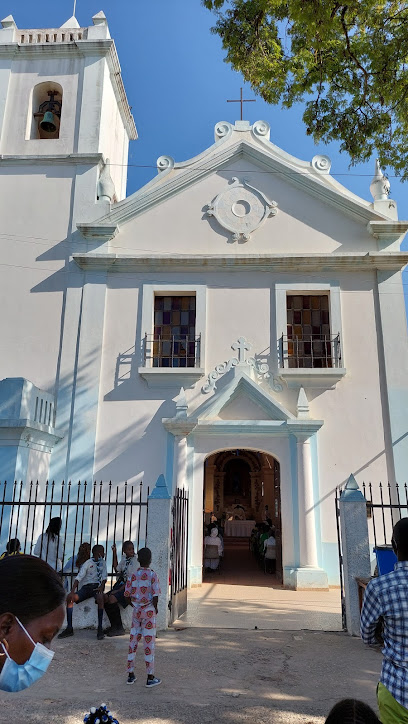
Monumento O Soldado desconhecido
Explore the Monumento O Soldado Desconhecido in Luanda, a poignant tribute to Angola's heroes and a gateway to the nation's rich history.
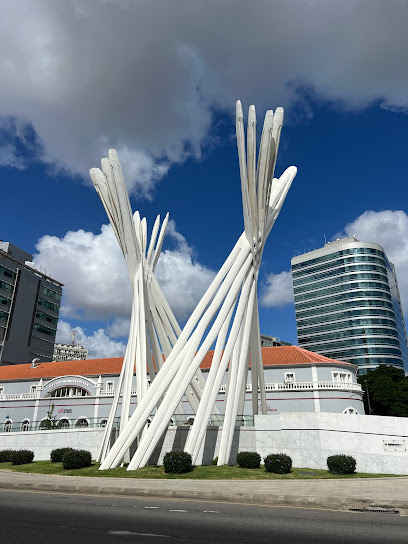
Ilha do cabo
Explore Ilha do Cabo, Luanda's coastal paradise with beautiful beaches, vibrant nightlife, and rich cultural experiences—a must-visit destination in Angola.

Unmissable attractions to see
Viewpoint of the Moon
Discover the otherworldly beauty of Miradouro da Lua in Angola, a stunning lunar landscape carved by erosion offering breathtaking sunset views.
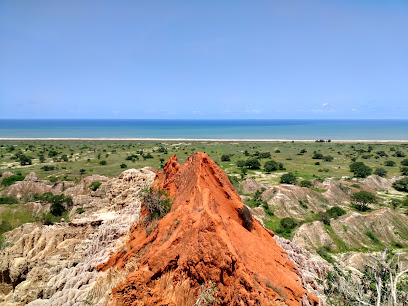
Museu da Moeda
Explore Angola's rich monetary history at the Museu da Moeda in Luanda, showcasing currency evolution from ancient times to the present day.

Museum of Natural History
Explore Angola's natural wonders at Luanda's National Museum of Natural History, showcasing diverse ecosystems and iconic wildlife.
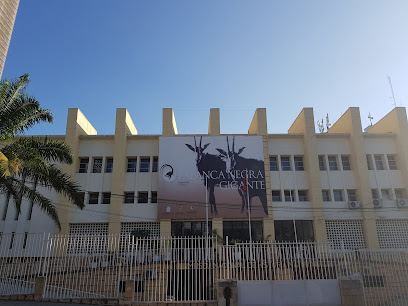
Church of Our Lady of Remedies
Discover Luanda's spiritual heart at the Church of Our Lady of Remedies, a historic cathedral showcasing Angola's rich colonial and religious heritage.
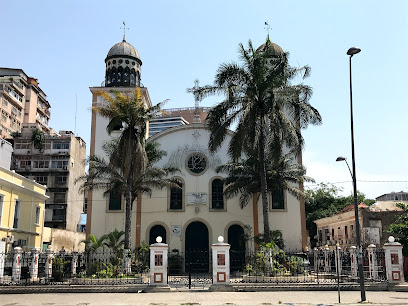
Cemitério Dos Navios
Explore the haunting beauty of Angola's Cemitério Dos Navios, a unique maritime graveyard where history and nature intertwine.

Ilha do Refúgio
Escape to Ilha do Refúgio: A serene island retreat offering tranquil views and a quick getaway from Luanda's bustling city center.
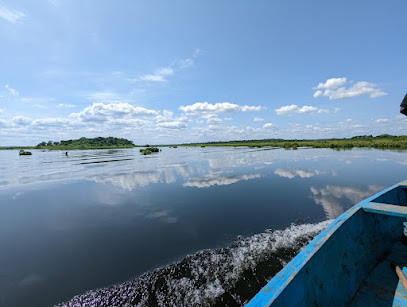
Essential places to dine
Tamashi More.than.Sushi Ilha
Discover authentic Japanese cuisine at Tamashi More.than.Sushi Ilha in Luanda, where fresh sushi meets vibrant local culture.
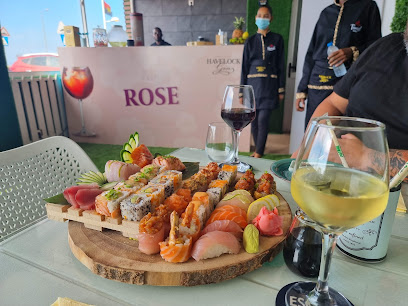
Restaurante Cabosheu
Experience authentic Angolan cuisine with stunning views at Restaurante Cabosheu on Ilha de Luanda.
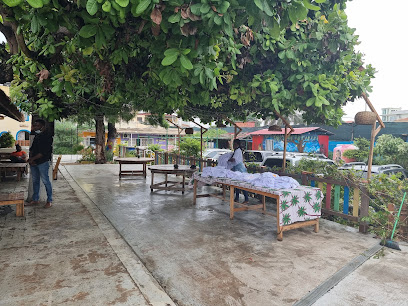
SUMMER BAR
Experience vibrant dining at Summer Bar on Ilha de Luanda - a perfect blend of local flavors and stunning ocean views.
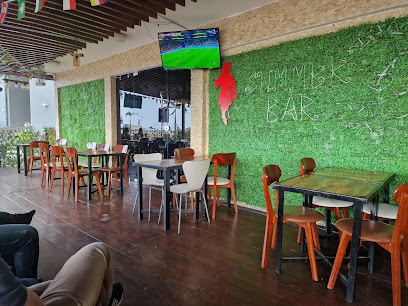
Restaurente Tamariz
Experience authentic Angolan cuisine at Restaurante Tamariz in Luanda – a must-visit for food lovers seeking local flavors.
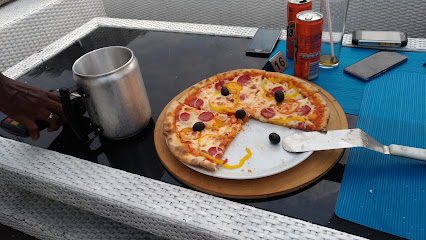
Restaurante Tenda da Ilha
Discover authentic Angolan cuisine at Restaurante Tenda da Ilha in Luanda – where every dish tells a story.
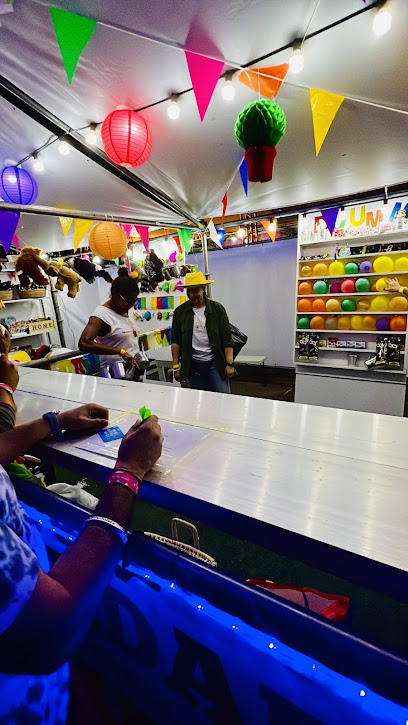
Ventos & Horizontes
Experience authentic Angolan cuisine at Ventos & Horizontes in Luanda – a culinary gem offering delicious dishes and inviting ambiance.
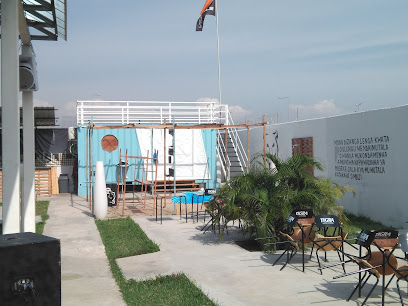
Adlone- Comercio e Prestação de Serviço, Lda
Discover authentic Angolan cuisine at Adlone - a delightful restaurant on Ilha de Luanda offering rich flavors in a warm atmosphere.

Gourmet Line
Discover authentic Angolan cuisine at Gourmet Line in Luanda's Centralidade do Kilamba - where every dish tells a story.
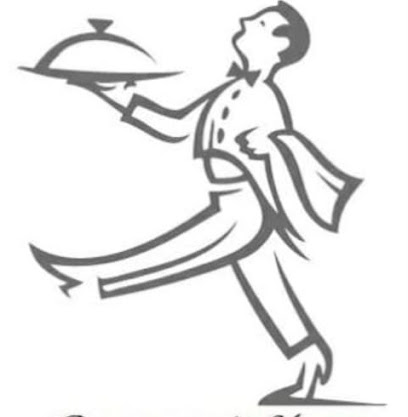
Floresta amazonia
Discover Floresta Amazonia - A Seafood Haven in Luanda Offering Authentic Angolan Flavors and Unforgettable Dining Experiences.

Vila do Sabor
Experience authentic Angolan flavors at Vila do Sabor – a culinary gem in Luanda showcasing traditional dishes with warm hospitality.

Markets, malls and hidden boutiques
Sporte Bike
Discover Sporte Bike in Luanda, your ultimate destination for stylish clothing and accessories tailored for an active lifestyle.
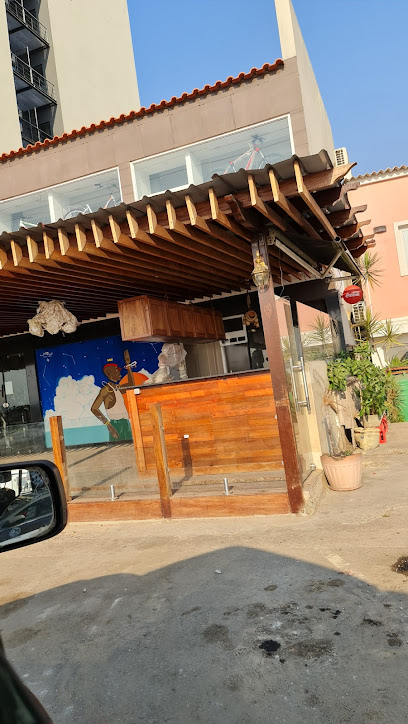
Rose Palhares - Ready to Wear
Shop for contemporary Angolan fashion at Rose Palhares - Ready to Wear, a stylish clothing store in Luanda offering unique garments and accessories.

AMNT
Experience Angolan culture at AMNT, a vibrant store in Luanda offering unique crafts and contemporary goods that embody local artistry.

fragancy
Discover the exquisite world of fragrances at Fragrance, Luanda's premier perfume store, where every scent tells a story.

Angola Store
Explore the heart of Luanda at Angola Store, where local culture and craftsmanship come together in a vibrant shopping experience.

Marali Boutique
Explore Marali Boutique in Luanda for unique clothing that embodies the spirit of Angolan fashion, perfect for tourists and locals alike.
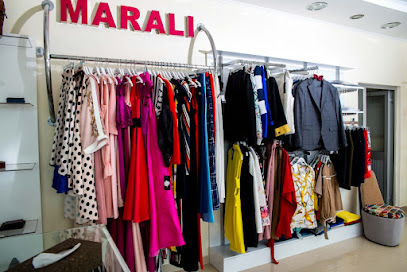
Padaria RC
Experience the unique flavors of Luanda at Padaria RC, a charming bagel shop that blends local ingredients with culinary creativity.

Mini Mercado Mayuca
Explore the local flavors and crafts at Mini Mercado Mayuca, Luanda's vibrant market offering a taste of Angolan culture.
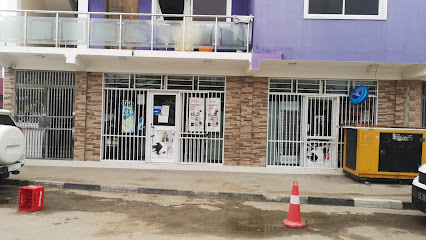
Ukindi Fardos
Discover the colorful essence of Angolan fashion at Ukindi Fardos, Luanda's vibrant clothing market showcasing local craftsmanship.

Henok Girmai Mini Mercado
Discover the vibrant local culture at Henok Girmai Mini Mercado, your gateway to authentic Angolan products and everyday essentials in Luanda.
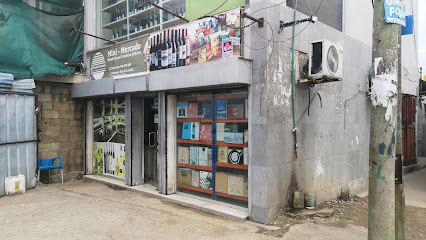
Essential bars & hidden hideouts
Infinitus Gastrobar
Experience the vibrant nightlife of Luanda at Infinitus Gastrobar, where exquisite drinks and lively atmosphere blend seamlessly.
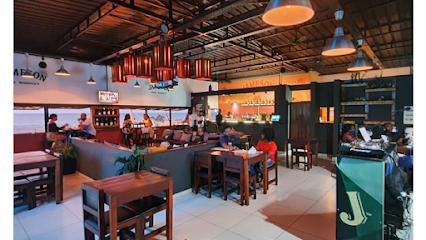
SUMMER BAR
Experience the flavors of Angola at Summer Bar, a delightful restaurant on Ilha de Luanda, perfect for enjoying local cuisine with stunning ocean views.
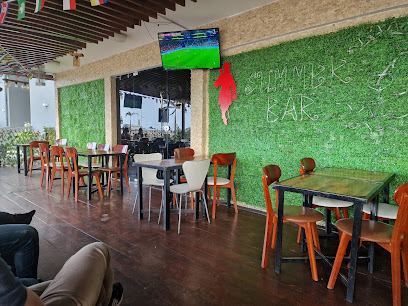
Missanga Beach Bar
Experience the vibrant atmosphere and stunning views at Missanga Beach Bar, a top destination for relaxation and local culture in Luanda.
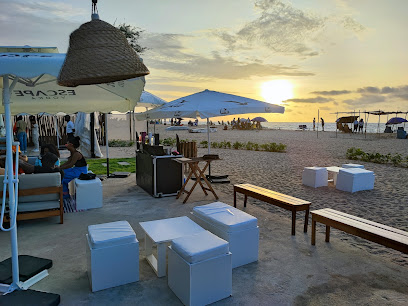
Hip-hop D'Concreto
Experience the vibrant nightlife of Luanda at Hip-hop D'Concreto, where music and culture fuse to create an unforgettable bar experience.
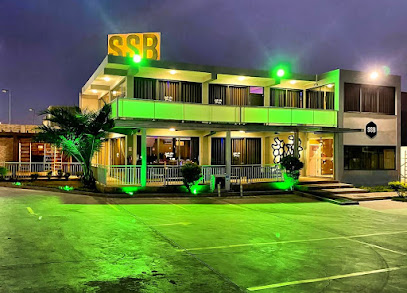
Bar THE TEST
Experience the vibrant nightlife at Bar THE TEST in Luanda, a local favorite for drinks, music, and mingling.
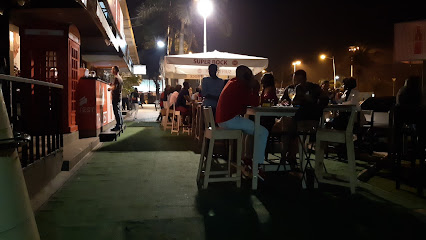
nosso bar
Experience the vibrant nightlife of Luanda at Nosso Bar, where delicious drinks and local culture blend seamlessly for an unforgettable evening.

Fora D'Horas Snack Bar & Lounge
Discover the flavors and vibrant nightlife at Fora D'Horas Snack Bar & Lounge, the perfect spot for relaxation and local culinary delights in Luanda.

Bar da Vivi
Experience the vibrant nightlife at Bar da Vivi in Luanda, where delicious drinks and local culture meet in a lively, welcoming atmosphere.
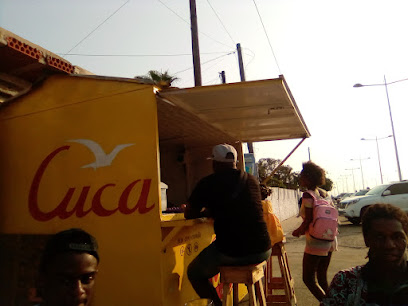
Lookal
Discover the lively nightlife at Lookal Bar in Luanda, where vibrant atmosphere meets authentic Angolan culture and refreshing drinks.

Bar dos Cotas
Experience the vibrant nightlife of Luanda at Bar dos Cotas, where refreshing drinks and stunning ocean views await.
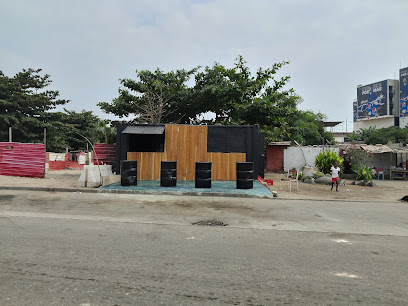
Local Phrases
-
- HelloOlá
[oh-LAH] - GoodbyeAdeus
[ah-DAY-oos] - YesSim
[seem] - NoNão
[now] - Please/You're welcomePor favor/De nada
[poor fah-VOHR/deh NAH-dah] - Thank youObrigado/Obrigada
[oh-bree-GAH-doo/oh-bree-GAH-dah] - Excuse me/SorryCom licença/Desculpe
[kohm lee-SEN-sah/dehs-KOOL-peh] - How are you?Como está?
[KOH-moh ehs-TAH] - Fine. And you?Bem. E você?
[behn/eh voh-SEH] - Do you speak English?Fala inglês?
[FAH-lah een-GLEHS] - I don't understandNão entendo
[now ehn-TEN-doo]
- HelloOlá
-
- I'd like to see the menu, pleaseGostaria de ver o menu, por favor
[gohs-tah-REE-ah deh vehr oo MEH-noo/por fah-VOHR] - I don't eat meatNão como carne
[now KOH-moo KAHR-neh] - Cheers!Saúde!
[sow-OO-djee] - I would like to pay, pleaseGostaria de pagar, por favor
[gohs-tah-REE-ah deh pah-GAHR/por fah-VOHR]
- I'd like to see the menu, pleaseGostaria de ver o menu, por favor
-
- Help!Ajuda!
[ah-ZHOO-dah] - Go away!Vai embora!
[vah-ee ehm-BOH-rah] - Call the Police!Chama a polícia!
[SHAH-mah ah poh-LEE-see-ah] - Call a doctor!Chama um médico!
[SHAH-mah oon MEH-dee-koo] - I'm lostEstou perdido
[ehs-TOH pehr-DEE-doo] - I'm illEstou doente
[ehs-TOH doo-EHN-teh]
- Help!Ajuda!
-
- I'd like to buy...Gostaria de comprar...
[gohs-tah-REE-ah deh kohm-PRAR] - I'm just lookingEstou só a ver
[ehs-TOH soh ah vehr] - How much is it?Quanto custa?
[KWAHN-too KOOS-tah] - That's too expensiveIsso é muito caro
[EE-soh eh MWEEN-too KAHR-oo] - Can you lower the price?Pode baixar o preço?
[POH-deh BAHY-shahr oo PREH-soo]
- I'd like to buy...Gostaria de comprar...
-
- What time is it?Que horas são?
[keh OH-rahs sah-oong] - It's one o'clockÉ uma hora
[eh OO-mah OH-rah] - Half past (10)Meio-dia (10)
[MAY-oh-dee-ah (DEES)] - MorningManhã
[mah-NYAH] - AfternoonTarde
[TAHR-deh] - EveningNoite
[NOY-chee] - YesterdayOntem
[AWN-tehm] - TodayHoje
[OH-zheh] - TomorrowAmanhã
[ah-mah-NYAH] - 1Um
[oom] - 2Dois
[doysh] - 3Três
[trehs] - 4Quatro
[KWAH-troh] - 5Cinco
[SEEN-koo] - 6Seis
[says] - 7Sete
[SEH-teh] - 8Oito
[OY-toh] - 9Nove
[NOH-veh] - 10Dez
[dehz]
- What time is it?Que horas são?
-
- Where's a/the...?Onde fica o/a...?
[OHN-deh FEE-kah oo/ah] - What's the address?Qual é o endereço?
[kwahl eh oo ehn-DEH-reh-soo] - Can you show me (on the map)?Pode mostrar-me (no mapa)?
[POH-deh moh-SHTRAH-meh/noo MAH-pah] - When's the next (bus)?Quando é o próximo (autocarro)?
[KWAHN-doo eh oo PROH-ksee-moo/ow-toh-KAH-roo] - A ticket (to ....)Um bilhete (para ....)
[oom bee-LYEH-teh/PAH-rah]
- Where's a/the...?Onde fica o/a...?
History of Ilha do Cabo
-
Ilha do Cabo, originally a small island off the coast of Luanda, was significantly shaped by Portuguese colonialism in the late 15th century. The area became a key point for the transatlantic slave trade, with many enslaved Africans being transported through Luanda's ports. The colonial architecture and layout of the neighbourhood reflect this historical period, showcasing buildings that have stood the test of time.
-
In the early 20th century, Ilha do Cabo developed a thriving fishing industry, becoming an essential hub for local fishermen. The community's reliance on the sea is evident in its vibrant markets and the traditional fishing methods still practiced today. This economic activity supported the local population and contributed to the cultural fabric of the area.
-
Ilha do Cabo is renowned for its cultural diversity, a blend of indigenous Angolan traditions and Portuguese influences. This fusion is particularly evident in the culinary scene, with local restaurants serving traditional dishes such as 'muamba de galinha' and 'caldeirada'. The annual festivals celebrating music and dance highlight the community's rich cultural heritage, attracting both locals and tourists.
-
Following Angola's independence from Portugal in 1975, Ilha do Cabo experienced significant changes. The area became a popular seaside destination for Luandans, leading to urban development and the establishment of leisure facilities. Despite the challenges faced during the Civil War, Ilha do Cabo has transformed into a vibrant neighbourhood known for its nightlife, beaches, and cultural events.
-
In recent years, Ilha do Cabo has faced environmental challenges, including coastal erosion and pollution. Local initiatives aimed at promoting sustainable tourism and conservation efforts have emerged to protect the area's natural beauty. These efforts are crucial in maintaining the delicate balance between development and environmental preservation, ensuring that Ilha do Cabo remains a cherished part of Luanda's coastal landscape.
Ilha do Cabo Essentials
-
Ilha do Cabo is located approximately 15 kilometers from the Luanda city center. Taxis are the most convenient way to reach the island, and they are readily available throughout Luanda. Alternatively, you can take a minibus (known as 'candongue') from central Luanda; however, this option may be less comfortable for tourists. If you are arriving at Quatro de Fevereiro International Airport, taxis can take you directly to Ilha do Cabo in about 30 minutes, depending on traffic.
-
Ilha do Cabo is relatively small, making it easy to explore on foot. Bicycles are available for rent at various locations, providing a fun way to navigate the area. Local taxis can also be hired for longer distances or if you prefer not to walk. There are no specific train or reliable public bus services on the island, so relying on taxis or bicycles is recommended.
-
Ilha do Cabo is generally considered safe for tourists, but it is important to exercise caution. Avoid walking alone at night, especially in less populated areas. Be mindful of your belongings in crowded places and stay alert to your surroundings. Although violent crime is not common, petty theft can occur, particularly in busy areas and markets. Always be cautious in poorly lit streets.
-
In case of emergency, dial 113 for police assistance or 222 for medical emergencies in Angola. It is advisable to have a local SIM card to ensure you can make calls. Familiarize yourself with the location of the nearest hospital, which is often the Hospital Geral de Luanda. Travel insurance that covers medical emergencies is highly recommended, as healthcare facilities may vary in quality.
-
Fashion: Do wear lightweight, breathable clothing due to the warm climate, but avoid revealing outfits, especially in local markets. Religion: Do be respectful at religious sites; remove your shoes when entering homes or certain places of worship. Public Transport: Do negotiate taxi fares in advance; don't expect metered fares. Greetings: Do greet locals with a friendly smile and 'Bom dia' (Good morning) or 'Boa tarde' (Good afternoon). Eating & Drinking: Do try local seafood delicacies; don't drink tap water—opt for bottled water instead.
-
To experience Ilha do Cabo like a local, visit the local fish markets early in the morning for the freshest catch. Engage with fishermen and vendors to learn about their daily routines. For a unique experience, try dining at one of the small, family-run restaurants where you can enjoy authentic Angolan cuisine. Don't miss the chance to explore the beautiful beaches, such as Praia do Sangano, to relax like a local.
Trending Landmarks in Ilha do Cabo
-
Fortaleza de São Miguel
-
Miami Beach
-
Viewpoint of the Moon
-
Museu da Moeda
-
Church of Carmo
-
Luanda Bay
-
Ilha de Luanda
-
Lighthouse Island
-
Church of Our Lady of Remedies
-
National Museum of Anthropology
-
Nossa Senhora da Nazaré
-
Ponto Final
-
Igreja da Nossa Senhora do Cabo
-
Monumento O Soldado desconhecido
-
Ilha do cabo
Nearby Cities to Ilha do Cabo
-
Things To Do in Uíge
-
Things To Do in Cabinda
-
Things To Do in Lambaréné
-
Things To Do in Ongwediva
-
Things To Do in Oshakati
-
Things To Do in Libreville
-
Things To Do in Etosha Village
-
Things To Do in Mbini
-
Things To Do in Bitam
-
Things To Do in Angolares
-
Things To Do in Ribeira Afonso
-
Things To Do in Rundu
-
Things To Do in Trindade
-
Things To Do in Sao Tome City
-
Things To Do in Guadalupe










